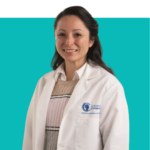
Tahiyya Khan is a graduate student of the Drexel University Maternal and Child Health (MCH) Catalyst Program with a Master of Public Health (MPH) in Community Health and Prevention and a minor in Maternal and Child Health (MCH). In 2018, she obtained a bachelor’s degree in Public Health with a Psychology concentration, a minor in Sociology, and a certificate in Community Engagement. She became an event coordinator for several organizations while also being an intern as a health coach. During the summers of the pandemic, she was an early childhood educator for daycares. After graduating with her undergraduate degree, she began her master’s program in 2022 and continued her passion for event coordinating through the MCH student organization and the School of Public Health student government. After completing a summer internship with a non-profit organization, she conducted qualitative research on a global MCH-related topic. After graduating this year, she hopes to continue working at non-profit organizations as a program coordinator to provide quality education and resources for children and adolescent populations.
The role of coaching and mentoring is a guiding light in the constantly changing field of public health. Mentors are essential in helping prospective professionals traverse the difficulties of this industry by molding their path, offering wisdom, and encouraging development.
As a young child, my earliest memory of wanting to be a mentor was participating with my mother in a weekly reading program that my local library held, run by teen volunteers. As time passed, this routine enabled me to become one of those volunteers eight years later. I graduated high school wanting to advocate about the importance of education and the power of knowledge for those who lacked access to it.
Through the help of my undergraduate advisor, I was encouraged to learn more about the role of public health. Planning awareness-raising events for children and families evolved from a philanthropic endeavor to a driving force behind my commitment to integrating maternal and child health (MCH)-related topics into education programs. Being an intern as a health coach helped me address these differences of financial and educational difficulties head-on and develop solutions in a supportive setting. The continued guidance of my mentors from all the organizations I was committed to enabled me to pursue a master’s program.
My enthusiasm for health activism and education was further stoked by my role as an event coordinator in the Drexel MCH Student Organization and my participation in the student government. Whether planning activities or leading campaigns, the ultimate objective never changed: to promote health literacy and awareness in local communities.
Over the course of summer 2023, I completed Bridging The Gaps (BTG), a program through which I worked as an intern at a community site and attended seminar sessions on different health-related topics. The community site, Heights Philadelphia, is a non-profit group that helps minority students succeed in high school and post-graduate endeavors. The first time I walked through the doors of Heights Philadelphia was like being the new girl on the first day of school. I had to step up and become an example for a population I had not yet worked with in a setting with which I was not familiar. I noticed early in the program that students had difficulties with mental health, poverty, and feeling comfortable in their environment because of weapons and other violent crimes such as the high prevalence of gun violence throughout the city. Seeing the kids become indifferent to their struggles and normalize them broke my heart.
My two BTG site partners and I decided to design and oversee an elective for middle school students called Arts, Crafts, and Expression (ACE) based on our mutual appreciation of the performing and visual arts. The week’s first activity was an arts and crafts project to highlight learning abilities relevant to adult growth, such as nutrition, sewing, and environmental sustainability. The second activity was a dance class with sample choreography from various backgrounds to encourage movement and uphold a healthy lifestyle. The eight classes aimed to develop various artistic coping skills for stress release to avoid burnout, as juggling education and other daily responsibilities might occasionally become too much for teens and adults. After a little encouragement and direction to take their time and put in the effort when they felt ready, the students really engaged in our lessons and looked forward to the next class. When some students who had initially found the class uninteresting started asking questions about resources and how they could continue the activity at home, the added involvement made the challenge of this project even more worthwhile.
Reflecting back on this internship, I can honestly say that it was fulfilling as it made me realize how much responsibility comes with leadership. Mentoring students emphasized the value of education and was a humbling experience that taught me the importance of activism and self-determination in the face of difficulty.
Looking back at my academic journey, I am indebted to the mentors and teachers who helped me along the way. Not only has their constant support and direction influenced my path, but they have also taught me the value of community. As I begin to navigate the industry, I am dedicated to fostering the passion of the upcoming generation of professionals to ensure they receive quality education, empower them, and bring about positive change in the field of MCH.

